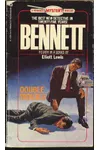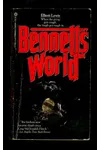Picture a voice that could make you laugh, shiver, or lean closer to your radio—meet Elliott Lewis, the American maestro dubbed 'Mr. Radio' for his dazzling work in the golden age of broadcasting! From side-splitting comedies to spine-chilling mysteries, Lewis wore every hat—actor, writer, producer, director—before spinning his storytelling magic into detective novels. His journey from New York’s streets to Hollywood’s airwaves and the printed page is a tale of versatility and passion that shaped entertainment for decades.
The Making of Elliott Lewis
Born on November 28, 1917, in New York City to printer Julius Lewis and Anne Rabinowitz Lewis, Elliott Bruce Lewis grew up with a younger brother, Raymond, in Mount Vernon, New York. Initially set on a pre-law path, he moved to Los Angeles in his 20s, only to be seduced by the stage at Los Angeles City College, where he studied music and drama. A college play caught the eye of producer True Eames Boardman, and at 18, Lewis made his radio debut in 1936, reading lines for a Simon Bolivar biography. That spark ignited a career that would define an era.
Elliott Lewis’s Unforgettable Stories
Lewis’s radio career was a masterclass in multitasking. As an actor, he stole the show as Frankie Remley, the troublemaking guitarist on The Phil Harris-Alice Faye Show, turning a real band member’s name into a comedic legend. His voice also narrated Gordon Jenkins’s Manhattan Tower (1945), a musical story that captivated listeners. Behind the scenes, Lewis produced and directed classics like Suspense (1950–1956) and Crime Classics (1953–1954), crafting tales that kept audiences glued to their radios. His writing shone in scripts for Sears Radio Theater (1979), including 'The Thirteenth Governess,' though his nuclear-disaster story 'Cataclysm at Carbon River' was too bold for CBS and never aired.
In his 60s, Lewis traded microphones for manuscripts, penning seven detective novels featuring Fred Bennett, a bitter ex-cop turned private eye. Published by Pinnacle Books (1980–1983), titles like Two Heads Are Better (1980) and Death and the Single Girl (1983) blended gritty suspense with sharp wit, earning a Shamus Award nomination for the latter. Lewis’s style—vivid, lyrical, and laced with tension—reflected his radio roots, where sound and story had to paint every scene.
Why Elliott Lewis Matters
Lewis’s impact stretches beyond his 1,200+ radio productions. His World War II service as a master sergeant, producing 120 shows for the Armed Forces Radio Network, earned him a Legion of Merit for boosting troop morale. His ability to juggle comedy, drama, and suspense made him a cornerstone of radio’s golden age, while his novels added a fresh voice to detective fiction. Lewis’s legacy lives in the timeless thrill of his stories, still cherished by old-time radio fans and mystery readers alike.
- About Elliott Lewis
- Born: November 28, 1917, New York City
- Key Works: The Phil Harris-Alice Faye Show, Suspense, Two Heads Are Better, Death and the Single Girl
- Awards: Legion of Merit, Shamus Award nominee (1984)
- Died: May 23, 1990, Gleneden Beach, Oregon
Ready to time-travel with a radio legend? Snag Two Heads Are Better or tune into Suspense episodes to experience Elliott Lewis’s electrifying world of mystery and mirth!






